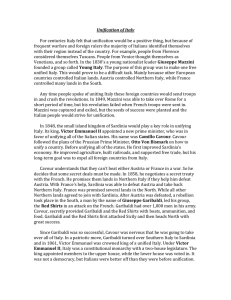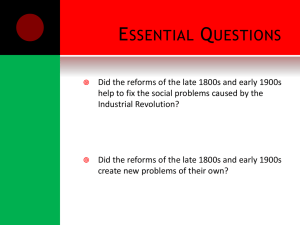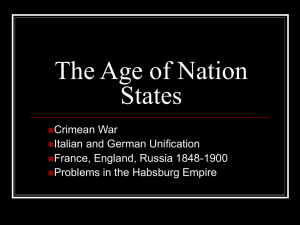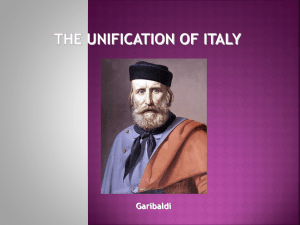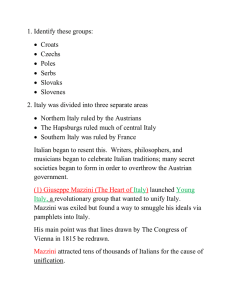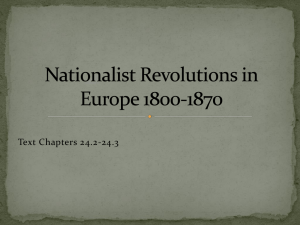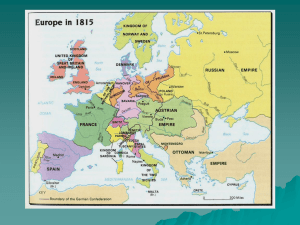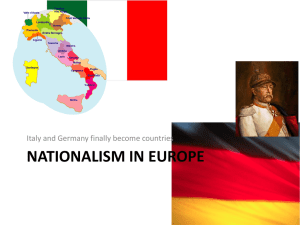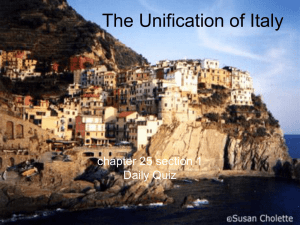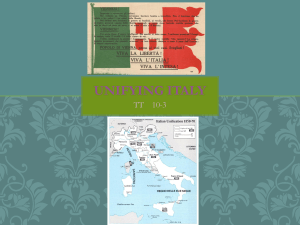Unification of Italy
advertisement
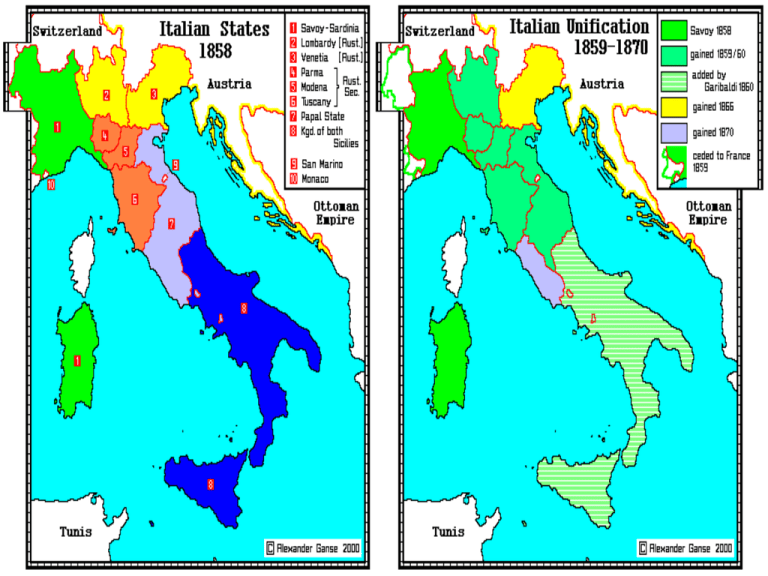
Unification of Italy Ch 16. Sec1 Nationalist in Italy Italians were inspired by the French Revolution. • • • • Congress of Vienna kept Italy separated. Austria controlled portions of northern Italy. Other independent states kept unification hard to do. A group of Italian tried to keep it alive. • This group was called the Risorgimento ”resurgence”. • Secret society. Giuseppe Mazzini Formed the Young Italy movement. • Forced Austrian out of Lombardy and Venetia. • Seized control of Rome • A republic was formed by Mazzini and two other leaders. • His victories were not long lived. • Austria gain control of northern states. • Only Sardinia remained independent. Sardinia Was ruled by King Victor Emmanuel II. Chief Minister was Camillo Benso di Cavour. • Was more powerful than King. • Wanted to expand Sardinian territory. • Wanted to lead in uniting Italy. • He strengthened the military and Industry. • Allied with France and England. Sardinia and France Austria was the greatest barrier to Italian unity. • • French Emperor Napoleon III wanted to increase French influence in Italy. Cavour hoped that with Austria out, Italian states would join with him. War with Austria Sardinia provoked Austria to war and France sent troops to help. Austria was quickly defeated in Italy. • States of Lombardy, Venetia, Tuscany, • Modena, and Parma join Sardinia. French signs treaty with Austria. • Austria gets Ventia back. France gets Nice and Savoy. Sardinia gets Lombardy. Unifying the South Southern half of Italy was made up of the Kingdom of the Two Sicilies. Giuseppe Garibaldi was leader of nationalistic movement. • • Formed and army of 1,000 men and captured Sicily and Naples. Marched to Papal States. • Cavour thought that Garibaldi was becoming to popular • and set up his own republic. Garibaldi stepped aside for Sardinia. Problems of Unification Papal states were added to Italy by 1870 and Austria was ran out of Italy in 1866. Few Italians had experienced selfgovernment. There were cultural differences between the south and north. • North was more industrial and south agricultural.
